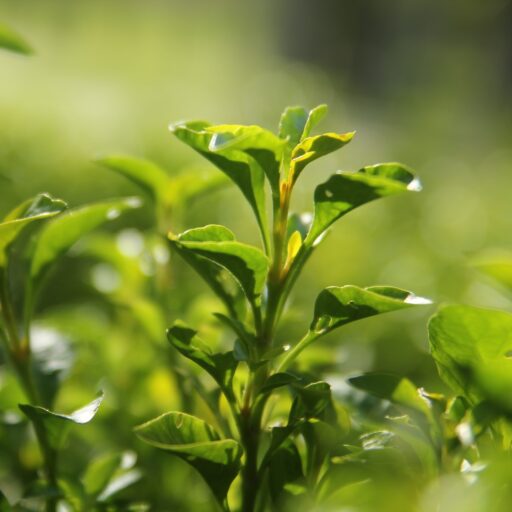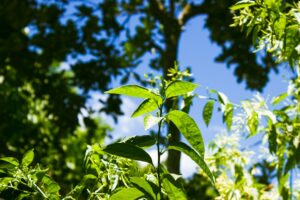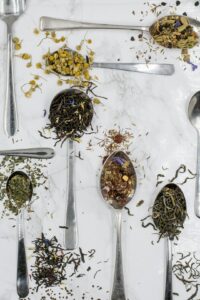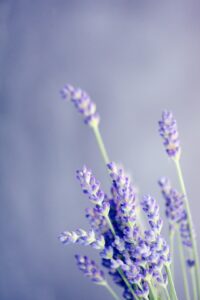Support our educational content for free when you purchase through links on our site. Learn more
[2023] Create Your Indoor Tea Garden Kit: Expert Tips and Recommendations
Is there anything more refreshing than a glass of iced tea on a hot summer day? Growing your own tea garden allows you to experience the satisfaction of cultivating your own tea leaves and creating unique blends. In this article, we will guide you through the process of creating your own indoor tea garden kit, providing expert tips and recommendations along the way.
Table of Contents
- Quick Answer
- Quick Tips and Facts
- Background: The Joy of Growing Your Own Tea
- Choosing the Right Plants for Your Indoor Tea Garden
- Setting Up Your Indoor Tea Garden Kit
- Caring for Your Indoor Tea Garden
- Harvesting and Processing Your Tea Leaves
- FAQ
- Conclusion
- Recommended Links
- Reference Links
Quick Answer
Growing your own indoor tea garden kit allows you to enjoy the satisfaction of cultivating your own tea leaves and creating unique blends. With the right plants, setup, and care, you can have a thriving tea garden right in your own home. Check out our recommended indoor tea garden kits to get started.
✅ CHECK PRICE on: Indoor Tea Garden Kit | Tea Plant Seeds | Herb Garden Starter Kit
Quick Tips and Facts
- Indoor tea gardens are perfect for those with limited outdoor space or for those who want to enjoy fresh tea year-round.
- Tea plants, such as Camellia sinensis, can be grown indoors with proper care and attention.
- Many herbs, such as mint, chamomile, and lemon balm, can be grown alongside tea plants to create unique tea blends.
- Indoor tea gardens require adequate sunlight, well-draining soil, and regular watering.
- Harvesting and processing tea leaves can be a rewarding and enjoyable experience.
Background: The Joy of Growing Your Own Tea
Growing your own tea garden is a rewarding experience that allows you to connect with nature and enjoy the freshest tea possible. While herbal teas were once valued primarily for their flavor and taste, they are now appreciated for their medicinal benefits as well. By growing your own tea plants and herbs, you have full control over the quality and flavors of your tea.
Choosing the Right Plants for Your Indoor Tea Garden
When creating your indoor tea garden kit, it’s important to choose the right plants that will thrive in an indoor environment. Here are some popular options:
-
Tea Plants (Camellia sinensis): The tea plant is the star of your tea garden. It is the source of true tea, including green, black, and oolong tea. Choose a variety that is suitable for indoor cultivation, such as Camellia sinensis var. sinensis or Camellia sinensis var. assamica. These plants require bright, indirect sunlight and well-draining soil.
-
Herbs: Enhance your tea blends with aromatic herbs. Mint varieties, such as spearmint and peppermint, add a refreshing twist to your tea. Chamomile flowers bring a soothing and calming effect, while lemon balm and lemon verbena add a citrusy note. Choose herbs that suit your taste preferences and growing conditions.
-
Additional Plants: Consider adding other plants to your indoor tea garden kit, such as lavender, rosemary, or hibiscus. These plants can add depth and complexity to your tea blends.
Setting Up Your Indoor Tea Garden Kit
To create your indoor tea garden kit, you’ll need a few essential items:
-
Containers: Choose containers that provide adequate drainage and are large enough to accommodate the root systems of your plants. Consider using pots with saucers or trays to catch excess water.
-
Potting Mix: Use a well-draining potting mix specifically formulated for indoor plants. Avoid heavy garden soil, as it can lead to waterlogged roots.
-
Light Source: Tea plants and herbs require bright, indirect sunlight to thrive. Place your indoor tea garden near a south-facing window or use artificial grow lights to supplement natural light.
-
Watering Can: A watering can with a narrow spout allows for precise watering, preventing overwatering or waterlogging.
-
Pruning Shears: Pruning shears are essential for maintaining the shape and health of your tea plants and herbs. Regular pruning encourages bushier growth and prevents legginess.
Caring for Your Indoor Tea Garden
Proper care is crucial for the success of your indoor tea garden. Here are some tips to keep your plants healthy:
-
Watering: Tea plants and herbs prefer evenly moist soil. Water them when the top inch of soil feels dry, but avoid overwatering. Ensure that excess water drains out of the pots to prevent root rot.
-
Humidity: Tea plants appreciate higher humidity levels. You can increase humidity by placing a tray filled with water near your plants or using a humidifier.
-
Temperature: Tea plants thrive in temperatures between 65°F and 85°F (18°C to 29°C). Avoid exposing them to extreme temperature fluctuations or drafts.
-
Fertilization: Use a balanced, water-soluble fertilizer formulated for indoor plants. Follow the manufacturer’s instructions for application rates and frequency.
-
Pest Control: Monitor your plants regularly for pests such as aphids or spider mites. If necessary, treat them with organic pest control methods or insecticidal soap.
Harvesting and Processing Your Tea Leaves
The joy of growing your own tea extends to harvesting and processing your tea leaves. Here’s how to do it:
-
Harvesting: When your tea plants and herbs have reached maturity, harvest the leaves by gently plucking them. For tea plants, pluck the top two leaves and the bud. For herbs, harvest the leaves as needed, ensuring you leave enough foliage for the plant to continue growing.
-
Processing: To make green tea, lightly steam or pan-fry the tea leaves to halt oxidation. For black tea, allow the leaves to fully oxidize before drying. Herbal teas can be air-dried or dehydrated using a food dehydrator.
-
Storing: Store your processed tea leaves in airtight containers away from light, heat, and moisture. This will help preserve their freshness and flavor.
FAQ
Can you grow a tea garden indoors?
Yes, you can grow a tea garden indoors. Tea plants, such as Camellia sinensis, can be grown indoors with proper care and attention. Choose a variety suitable for indoor cultivation and provide them with adequate sunlight, well-draining soil, and regular watering.
Read more about “What Herbs Can You Grow Indoors for Tea? …”
How do you grow tea leaves indoors?
To grow tea leaves indoors, start by selecting a suitable tea plant variety, such as Camellia sinensis. Plant the tea plant in a container with well-draining soil and place it in a location that receives bright, indirect sunlight. Water the plant regularly and provide it with the necessary care, including pruning and fertilization.
Read more about “… Cold Hardy Tea Plants for Sale: A Comprehensive Guide”
What should I grow for a tea garden?
For a tea garden, consider growing tea plants, such as Camellia sinensis, as the centerpiece. You can also include herbs like mint, chamomile, lemon balm, and lemon verbena to create unique tea blends. Additional plants like lavender, rosemary, or hibiscus can add depth and complexity to your tea garden.
Read more about “… How to Grow Green Tea at Home: A Comprehensive Guide”
How do you make a herbal tea garden?
To make a herbal tea garden, start by selecting herbs that suit your taste preferences and growing conditions. Choose a location with adequate sunlight and well-draining soil. Plant the herbs in containers or directly in the ground, ensuring they have enough space to grow. Provide regular care, including watering, fertilization, and pruning.
Read more about “What to Grow in a Tea Garden …”
Conclusion
Creating your own indoor tea garden kit is a delightful and rewarding experience. With the right plants, setup, and care, you can enjoy the satisfaction of growing your own tea leaves and creating unique blends. Start your tea-growing journey today and savor the flavors of homegrown tea. Check out our recommended indoor tea garden kits to get started.
Recommended Links
- CHECK PRICE on: Indoor Tea Garden Kit | Tea Plant Seeds | Herb Garden Starter Kit
- Shop Indoor Tea Garden Kits on: Amazon | Walmart | Etsy
- Shop Tea Plant Seeds on: Amazon | Walmart | Etsy
- Shop Herb Garden Starter Kits on: Amazon | Walmart | Etsy








